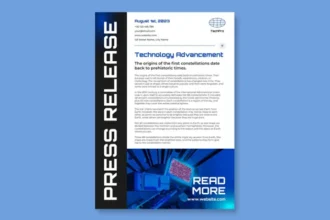Have you realized how common eCommerce business chargebacks are now that your customer base is growing? NerdWallet reports that chargebacks are the ‘reversal of funds’ right after a client has disputed a monetary transaction.
Initially, this was created as a way to keep your consumers protected from credit card fraud. However, brands are now facing issues separating legitimate transactions from fraudulent ones. Many people who spend money on eCommerce exploit the chargeback functions and dispute the funds with their credit card company.
In the next two years, the global chargeback volume will increase by forty-two percent. Moreover, in 2023, there were three hundred and thirty-seven million instances. This growth in payment transactions has paved the way for an increasing number of fraudulent consumer disputes.
In this blog post, we’ll discuss every intricate detail an eCommerce startup needs to know about chargeback fraud.
What Leads to Chargeback Fraud?
After making a purchase, customers sometimes claim that the transaction was unauthorized and fraudulent. How can your eCommerce startup be safe from it? Research suggests that preventive measures can help merchants fight the surge in chargebacks.
However, to think of a plan, you’ll need to understand the reasons why chargebacks happen. Some of them include the following:
- Some consumers make accidental chargebacks that are truly human errors and honest mistakes.
- Customers are unfamiliar with the chargeback procedures and request unintentional refunds.
- Clients often misinterpret refund policies because of the unclear procedures, leading to chargeback requests.
Apart from these, there’s an ‘intentional’ chargeback that’s often categorized as fraud. Fraudsters use stolen credit cards to make purchases from eCommerce brands. When the real owner sees these charges, they claim a chargeback.
3 Types of Chargeback Fraud You Should Be Aware Of
Now that you know what leads to chargeback fraud, it’s time to understand the types. They include the following:
- Friendly Fraud: A cardholder disputes a legitimate purchase, claiming that it wasn’t authorized.
- Subscription Fraud: Clients can dispute recurring charges and claim that they’re being charged for canceled services.
- Digital Goods Fraud: Customers might dispute charges after receiving the product they paid for.
According to PayPro Global, only fourteen percent of cardholders will contact merchants before issuing a chargeback. However, eighty-six percent of chargebacks are considered fraudulent as customers go straight to the bank for the dispute.
How Does Chargeback Fraud Affect eCommerce Startups?
eCommerce startups that sell digital goods or SaaS products are susceptible to fraudulent transactions. If you don’t take the necessary precautions, your business will face the following consequences:
- Reputational damage
- Extensive revenue loss
- Increased operational costs
- Need for fraud-prevention techniques
- Enhanced chargeback rates
3 Best Practices to Prevent Chargeback Fraud
Reports suggest that subscription-based companies are at a higher risk of witnessing chargeback claims. Similarly, eCommerce businesses offering luxury goods are also vulnerable to such fraud.
Even then, any business that accepts credit card payments can face chargeback fraud. To prevent such instances, you must follow these tips:
#1. Enhance Payment Processing
It’s not simple to fight chargeback fraud without optimizing your payment processing systems. You’ll need SSL certificates on your website to encrypt customer data. The 3DS2 authentication can also help during the checkout phase. A strong customer authentication system, like one-time passwords and biometrics, can also help.
Thankfully, collaborating with a Merchant of Record (MoR) or eCommerce solution can help implement secure protocols and discourage fraudsters. These tools come with secure PCI DSS level 1 and GDPR compliance.
#2. Monitor Transactions and Maintain Records
Another way to detect fraudulent patterns is by monitoring and maintaining transaction records. You’ll need real-time payment monitoring systems. With these, you can detect any anomalies with high-value payments and multiple transactions.
Apart from this, you’ll need to keep a detailed record of customer payments. These can help with communication, credit card confirmations, etc. It’ll also ensure that the data is secured and remains protected in your eCommerce startup’s database.
MoR software has payment monitoring features that help with billing management, invoicing, taxes, etc. With this eCommerce solution, you can weed out the fraudsters.
#3. Offer Excellent Customer Service
It’s true that frustrated customers are often inclined toward disputing payments. To reduce real chargebacks, your eCommerce startup needs to prioritize customer support and payment-related assistance.
If you’re able to address their issues, they’ll be satisfied and won’t file for chargebacks. You can use these interactions (emails, support tickets, chat logs) and build a better chargeback management process.
Did you know that the MoR tool you choose will offer dedicated customer service? They can provide 24/7 support to assist in various languages. With their help, you can build a long-lasting and rich relationship with your customers.
Chargeback fraud can be tackled if your eCommerce business is vigilant about it. First, you need to determine the type—be it friendly, subscription, or digital goods fraud. Based on that, you can understand how these can affect your eCommerce startup.
After that, you can leverage the best practices to prevent chargeback fraud. Examples include enhancing payment processing. Monitoring each transaction and maintaining a record of them can also help. Similarly, you need to provide excellent customer service. The best part is that you can do all these with the help of a MoR tool.










